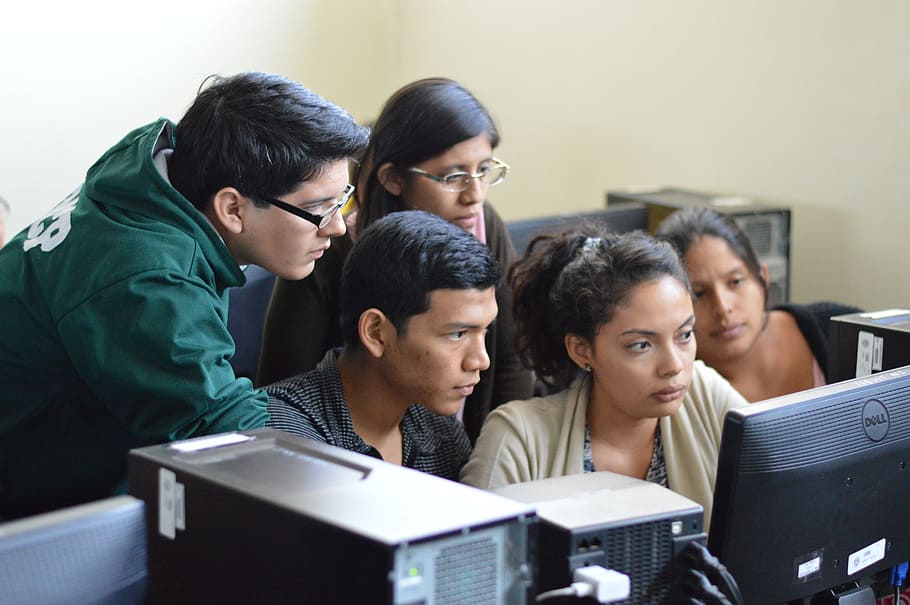A new study, published in the journal Education Research, investigates how young people make sense of their mental health and the factors they see as causing increased distress. The results of the in-depth interviews, conducted in Denmark, identified a growing gap between the realities of young people’s lives and their individualized expectations as a primary driver of poor mental health.
“It was the gap between the discourse of the abundance of options on the one hand and highly regulated actual opportunities on the other that seemed to be the common denominator in the young people’s stories about the distress they felt. The societal discourse of almost endless options appeared to cause the young people in this study to individualize the responsibility for success as well as failure,” the researchers, Jacobsen and Nørup, sociologists at Aalborg University in Denmark, write.

While Denmark offers a high standard of living with relativity low rates of material deprivation, the rates at which young people experience mental health issues are still on the rise. Self-reported stress among 16-24-year-olds in Denmark increased from 9% to 38% among women and from 4% to 18% among men between 2007 and 2017.
In a country that offers a relatively high degree of economic opportunity through publicly supported education, one may begin to think that their options are endless. However, recent reforms in the country have placed new pressures on individuals to choose career paths earlier and start a path to success while still in grade school.
“The educational choices and performance early in life directly affect the opportunities later on, with the result that performing and making ”the right” choice in childhood and early youth become more important,” Jacobsen and Nørup explain.
Recent reforms in Denmark, including a reduced period where one can receive funding while in school, increases the pressure to perform for young people while reducing the sense that it can be OK to make mistakes, need breaks, or revaluate one’s career path.
“Our analysis indicates that young people experience performance pressure in education and working life within a neo-liberal discourse that emphasizes individual responsibility for success and calls for individual-level solutions to what has previously been seen as social strategies,” Jacobsen and Nørup add.
To learn more about the way these changes may impact the way young people view their own mental health challenges, the researchers conducted two focus groups with a total of 17 participants between the ages of 18-28 from different backgrounds. In a loosely structured and exploratory nature, the researchers asked two questions: 1) According to the panel members themselves, in which situations did they find themselves vulnerable as a young person, and 2) which incidences could lead to vulnerability?
After analyzing the data with a specific focus on the participant’s view of their own mental vulnerability and with particular consideration for social pathologies and recent structural changes to the country, three themes emerged: 1) Expectations and performance pressure, 2) Self-perception and self-doubt, and 3) Taboo feelings.
Expectations and performance pressure highlighted the fact that most young people interviewed felt an intense pressure to perform and succeed at a chosen career choice. Individuals mentioned that they feel there is too much pressure placed on them to make the correct career choice early on, without room for consideration of other aspects of life, such as relationships or family stress.
Self-perception and self-doubt characterized the second theme, pointing to the impact that societal expectations had on the individual’s sense of self. This internalized pressure caused many of the participants to feel like failures if they were not able to achieve perfection in all areas of their lives. They reported intense pressure to achieve career success while balancing a family and having personal fulfillment.
Taboo feelings, such as a loss of control, came up in the focus groups. One participant explained, “Not knowing what is right is quite a lonely place to be. You think that everyone else is in control, you think you are different from the others.” In this sense, feelings of loneliness, loss of control, and a sense of failure stop being “allowed” and start to become taboo feelings, according to the participants.
Overall, participants seemed to hold high expectations for themselves, and they sensed that these expectations came from external pressures to perform as well as internal beliefs. When young people were not able to live up to these perfectionistic expectations, they experienced increased mental health challenges. Like Denmark, similar findings can be seen in other developed countries, as the pressure to perform and succeed has been shown to increase perfectionism among young people.
“Highly individualized young people who put pressure on themselves in attempts to achieve self-realization and success have, indeed, been problematized before in narratives of young people given many options at the cost of not knowing which ones to choose and, therefore, ending up feeling like failures.”
While young people individualize their perceived failures, which leads to increased self-doubt and mental health challenges, the authors suggest that this is best understood as a rational response to recent societal changes.
“The coexistence of highly optimistic expectations of almost endless options can lead to an anomic pathology, as it expands and individualizes the risk of failure. This anomic gap could present a contributing factor in explaining the increase in the number of young people experiencing poor mental health.”
While a desire for success may be considered valuable in specific contexts, an intense pressure to perform, fear of failure, and internalized perfectionism may cause more harm than good.
****
Jacobsen, B., & Nørup, I. (2020). Young people’s mental health: Exploring the gap between expectation and experience. Educational Research, 1-17. DOI: 10.1080/00131881.2020.1796516















Removed for moderation.
Report comment
Thanks for reporting on this important study.
Report comment
How do the authors attribute this to neoliberalism? Mitchell Dean recently published a paper entitled ‘Foucault and the neoliberal controversy’ that outlines what Dean/Foucault said in favour of neoliberalism. I think you have taken a big club at neoliberalism and haven’t taken account of a more nuanced analysis. My 2 cents worth.
Report comment
I believe “neoliberalism” may be a misnomer in this context. It is mostly a political-economic theory, not a social one. What the study is seeing could be characterized more, perhaps, as New Age.
From the study:
“The expectations were of an abundance of life and educational options, and a dominating discourse that young people in Scandinavia can become whatever they wish.”
Here is a typical New Age pronouncement from Vikas Jain (corrected for one incorrect word):
“With the changing business and social ecosystem, learning needs are also changing at an even faster pace. Organizations are getting disrupted through new-age technologies and innovations that require constant skilling, upskilling, reskilling, building industry-relevant knowledge, and more.”
“In this New-Age Education, there are New-Age Educators such as Speakers, Coaches, Corporate Trainers, Seminar Leaders, etc. to disseminate the knowledge and skills through seminars, conferences, and various other interventions.”
This is a push for corporate success through “mastery” of various skill sets. It’s all very catchy and slick. And you can see when you read this stuff that some of these people don’t have a clue what they are talking about. It’s marketing. “Be the best that you can be.” That’s not what they told me when I went to school!
It puts tremendous pressure on kids. That’s all this study really tells us. Did we really need an academic study to tell us this?
Report comment